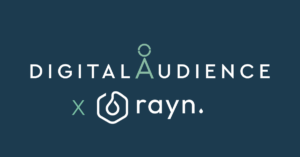The ExchangeWire Team on Nielsen's ID Graph, Apple's In-App Fees, and YouTube's Latest Ad Move
by Grace Dillon on 27th Nov 2020 in Podcast
On this week’s episode of The MadTech Podcast, ExchangeWire’s Lindsay Rowntree, Rachel Smith, and Ciaran O’Kane discuss the latest news in ad tech and martech.
In this week’s episode:
- Nielsen has announced that it is developing its own identity graph ID measurement system. The move puts the company in ranks with other ad tech measurement firms who are adopting the method as a solution to the end of the third-party cookie and other significant changes to tracking and targeting. Identity graphs serve as databases that host information that can be used to build audience segments. This information can include email address, IP address, demographic, and behavioural data.
Nielsen has stated that the solution, which it expects to roll out in the US in Q1 2021, will help it to adapt measurement to the current, and increasingly fragmented, media landscape. The new ID solution will form the basis of Nielsen’s existing cross-device measurement products, and will harmonise user and advertiser/publisher data, correct biases in its current measurement system, and use Nielsen’s machine learning technology to make data use more efficient and accurate.
- Apple has halved its in-app payments fee for smaller developers. The iPhone maker is now set to receive a 15% commission on all purchases made inside apps from developers whose annual revenues amount to less than USD $1m (£749,450). Whilst the move will stand to benefit most developers who list their apps on the App Store, who fall under the $1m revenue mark, observers assert that the decision is more likely an attempt by Apple to draw attention away from other antitrust complaints rather than to cut developers and consumers any slack.
According to experts, most of Apple’s App Store revenue comes from a small group of large developers, who continue to be charged the original 30% commission rate, which will in turn be passed on to consumers. Gene Munster, an analyst from Loup Ventures, estimates that the move will cost Apple just 0.5% of its 2021 commission revenue, reducing it from USD $15.8bn (£11.8bn) to $14.2bn (£10.6bn). Critics of the move include Match Group and Spotify, as well as Basecamp, who previously had a run-in with Apple over its in-app purchases policy, and Epic Games, which is currently suing the tech giant (alongside Google) over App Store fees.
- YouTube has started running ads on videos produced by creators who are not part of the platform’s Partner Program. The move was revealed in an updated terms of service, published last week, which asserted that the video-sharing site has the “right to monetise all content on the platform and ads may appear on video channels not in the YouTube Partner Program”. Selling ad space on videos from non-YPP members means that YouTube will make additional revenue without having to share any of it with the channel owners whose content is being advertised on. The company declared that they will refrain from running ads on videos that contain sensitive or inappropriate content, such as videos that discuss politics or religion, or depict sex or violence.
Unsurprisingly, the move has been widely criticised, with critics lambasting the change as exploitative and unfair. Some have called on the US government to dismantle the platform, which is part of the Alphabet Inc. empire, whilst others have urged content creators to unionise. Some channel owners have lamented that placing ads on their video without their consent will disrupt their audiences’ viewing experiences.








Follow ExchangeWire